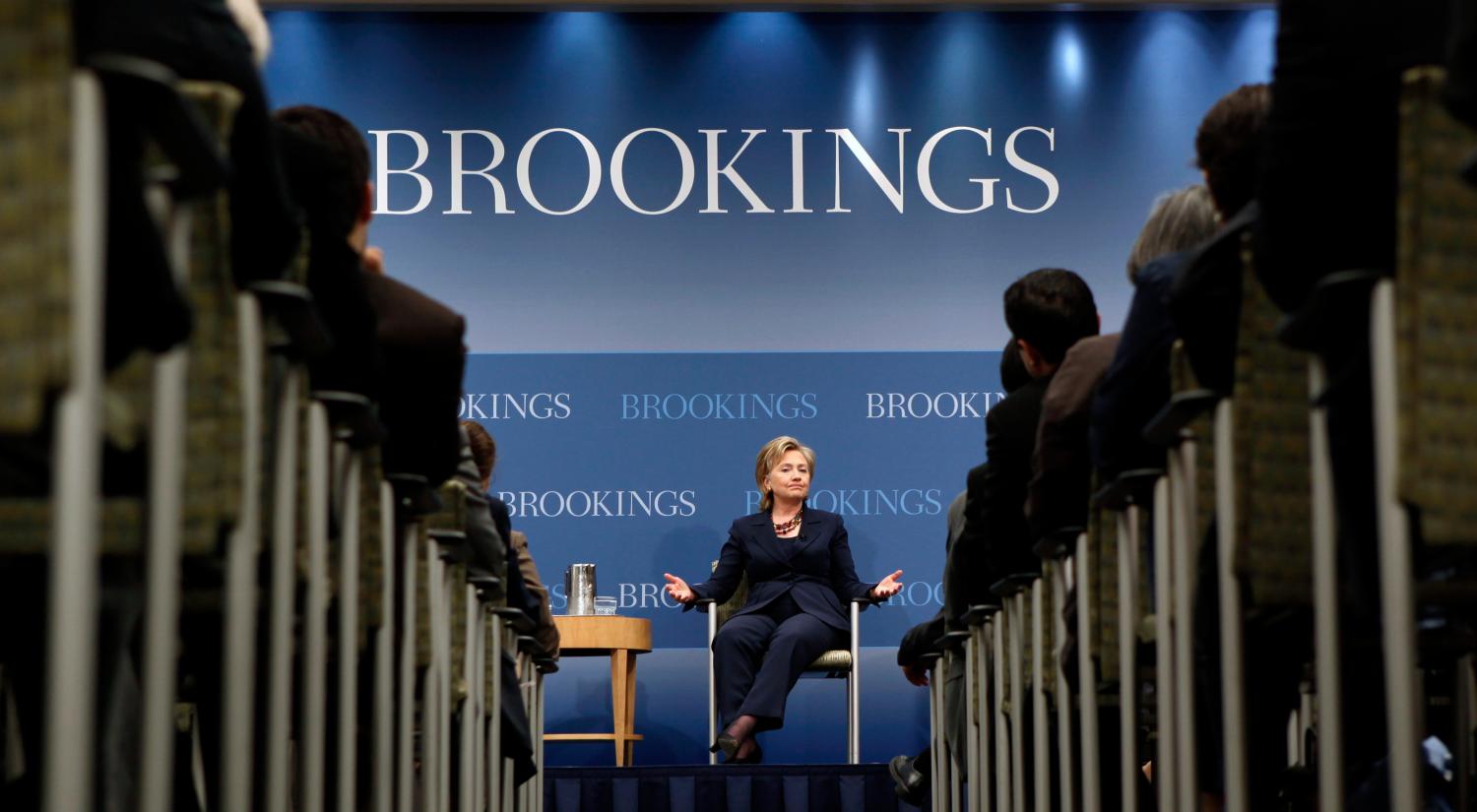Over the past half-century, the relationship between research centers and governing authorities in the United States has undergone a profound transformation. Increasing polarization between the political parties has reduced demand for nonpartisan research while sparking a proliferation of think tanks with overt links to specific parties and ideologies. Rising public skepticism about policy expertise, changes in funding patterns, and a far more complex media environment also have played important ant roles.
This is a familiar if important litany. Less familiar are the changes in the U.S. government itself—in particular, its increased analytical capacities at the national and state levels and in some of our major municipalities as well, claims Senior Fellow William Galston in this essay examining the history and future of the Brookings Institution.
According to Galston, these changes have reshaped the relationship between Brookings and our public institutions. From the 1920s through the 1960s, the federal government often asked Brookings for direct help in crafting policies and mechanisms of governance. For example:
- Shortly after what became the Brookings Institution was founded, one of its scholars, William Willoughby, took the lead in making the case for a unified national budget. The chairman of the House Committee on Appropriations asked him to draft a bill to that effect, which he did. Willoughby then testified before the committee and wrote its report. The House and Senate subsequently passed the bill with only minor amendments. The final result, the Budget and Accounting Act of 1921, created the president’s Bureau of the Budget (the precursor to today’s Office of Management and Budget) and the office of Comptroller General.
- During the 1920s, studies on international debt issues by Harold Moulton, Brookings’s first president, deeply influenced the Dawes Commission. In a press conference, an unhappy Commerce Secretary, Herbert Hoover, blamed Moulton for a major write-down of the French debt. Other Brookings studies on international debt led to the adoption of uniform standards for reporting international financial statements.
- A Brookings book developed the system of apportioning congressional representation among the states that was embodied in the Congressional Apportionment Act of 1941.
- In December of 1947 a perplexed Senate Foreign Relations Committee reached out to Brookings for advice on how to organize and administer the Marshall Plan. In transmitting this request, the committee’s chair, Senator Arthur Vandenberg, noted that “the deep and universal respect which the Brookings Institution richly deserves and enjoys would make your recommendation of tremendous value to those of us who are struggling in the trenches with this conundrum.” A team led by Leo Pasvolsky, the head of Brookings’s International Studies Group, completed this assignment in three weeks. Brookings’s work provided the blueprint for the Marshall Plan. In the floor speech, Senator Vandenberg noted the Senate’s “great obligation to the Brookings Institution for the masterly job it did. The provisions in the pending bill largely follow its recommendations.”
- Brookings research on presidential transitions led to papers prepared by Brookings staff and transmitted to the Nixon and Kennedy campaigns in 1960. In a memoir, Ted Sorenson described how these memoranda defined the agenda for JFK and his team during the transition and stated that Brookings “deserves a large share of the credit for history’s smoothest transfer of power between opposing parties.” A few years later, a Brookings researcher, Laurin Henry, made a compelling case that transition expenses should be publicly financed. Acting as a consultant to the Bureau of the Budget, he drafted a bill to this effect, which was enacted into law and signed by President Johnson in 1964.
Over the past five decades, such requests from government have become less frequent. Galston explores the consequences of this shift, explaining that as a result, Brookings has sought, and to some extent found, new modes of influence. It works to raise public awareness of previously ignored issues, to shape the public agenda, and to offer policy advice, privately as well as well as through an increasingly diverse menu of public communication. When Brookings’s scholars are invited to join administrations, moreover, the impact of their ideas on public policy can be direct and consequential.
“Throughout its history, the Institution has reposed its confidence in the long-term ability of high-quality, independent research to shape the environment within which public policies are debated and to influence policy choices when circumstances permit,” says Galston. “Today, this stance of strategic patience is more important than ever. This focus on long-term outcomes, which I believe to be necessary as well as wise, will require forbearance from the individuals, foundations, and corporations on whose support institutions such as Brookings must increasingly depend as well. The demand for rapid, measurable, direct impact on policy outcomes is bound to frustrate donors and recipients alike.”
The Brookings Institution is committed to quality, independence, and impact.
We are supported by a diverse array of funders. In line with our values and policies, each Brookings publication represents the sole views of its author(s).




